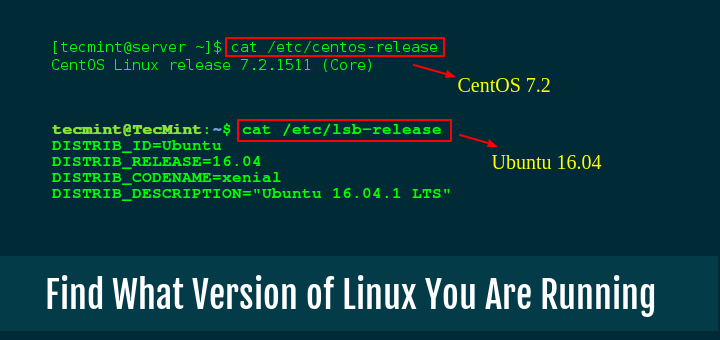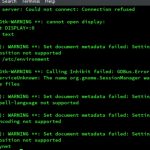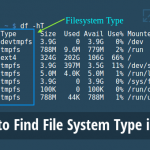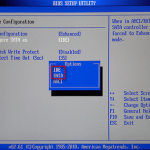
Table of Contents
Toggle
Recommended: Fortect
Over the past few days, some of our users have reported that they have experience checking the Linux kernel command line. g.uname command.hostnamectl command.Review part of the / proc / version file.dmesg command.
g.
In the grub.conf configuration file, you can specify command line parameters that the entire kernel will use, for example:
Recommended: Fortect
Are you tired of your computer running slowly? Is it riddled with viruses and malware? Fear not, my friend, for Fortect is here to save the day! This powerful tool is designed to diagnose and repair all manner of Windows issues, while also boosting performance, optimizing memory, and keeping your PC running like new. So don't wait any longer - download Fortect today!

kernel / boot / kernel-3-2-1-gentoo root = / dev / sda1 vga = 791 Is there a new way, after loading a specific kernel, to display the query string parameters that were passed to support the kernel in the first place? I found sysctl,
sysctl --all Summary. Want to know which version of the Linux kernel is running on your system? There were several ways to check the current kernel version in the terminal Linux.
You should be in a situation where you need to know what the current version of the Linux kernel is on your system. Thanks to the powerful Linux command line, you can easily figure this out.
In this article, I will show you different ways to find out what is written in your version of the kernel and tell you what these numbers actually mean. If you prefer video, everything is fast here. Don’t forget to join our YouTube channel for even more Linux tips.
How To Find Your Linux Kernel Version
uname -r: Find Linux kernel version.cat / proc / version: display the Linux kernel version in a special file.hostnamectl | grep kernel: For systemd based Linux distributions, you can use hotnamectl to display the hostname and launch the Linux kernel version.
I am using Ubuntu for this article. But these commands were common and can be used on Fedora, Debian, CentOS, SUSE Linux, also known as any other Linux distribution.
1. Find The Linux Kernel Using The Uname Command
uname is the gist of the Linux command to get system files. You can also use it to find out if you are using a 32 bit or 64 bit system.
uname -r 4.4. Means 0–97-generic For this reason, you are using the Linux 4.4.0-97 kernel, and more generally, you should be using the 4.4 Linux kernel.
But what do the other numbers meanIs it okay? Let me explain:
- 4 – kernel version
- 4 – major version
- 0 – minor version
- 97 Error – fix
- generic is a distribution-specific archipelago. For Ubuntu, this means I am using the desktop version. Ubuntu, to find the server version, it will be “Server”.
You can also use the uname command with the -a strategy. If necessary, you will receive additional information about the solution.
uname -a Linux itsfoss 4.4.0-97-generic # 120-Ubuntu SMP September 19 17:28:18 UTC 2017 x86_64 x86_64 x86_64 GNU / Linux - The name of the Linux kernel. If you run the same command on BSD or macOS high, the result may be different.
- itsfoss is the hostname.
- 4.4.0-97-generic – kernel unpacking (as we saw above).
- # 120-Ubuntu SMP Tue Sep 19 17:28:18 2017 utc. This means that Ubuntu 4.4.0-97-generic has been compiled 120 times. The timestamp of the last compilation is also available.
- x86_64 is a machine architecture.
- x86_64 – processor architecture.
- x86_64 – architecture of the operating system (you can use 32-bit – run the operating system on a 64-bit processor). “
- operating systemThe gnu / linux theme (and no, the distribution name is not displayed).
But I will save you information overload. Let’s take a look at some other commands to find out your Linux kernel version.
2. Find The Linux Kernel Using The File / Proc / Version
On Linux, users can also find kernel instructions in the / proc / version file. Just look at the contents of this skill file:
cat / proc / version You will see a result similar to uname.
Linux-Art 4.4.0-97-generic ( [secure email] ) (gcc version 5.4.0 20160609 (Ubuntu 5.4.0-6ubuntu1 ~ 16.04.4)) # 120 - Ubuntu SMP September 19 17:28:18 UTC, 2017 3. Find Your Linux Kernel Version Using The Dmesg Command
dmesg is a command commonly used to write kernel messages. It’s all too helpful to have a manual system.
Since dmesg contains a lot of information, you should usually use a great command, such as reading less about the concept. But since we’re only here to check the Linux kernel version, after typing “Linux” it should give a specific result.

dmesg | grep Linux The output will certainly consist of several sstring, but your organization should be able to easily identify the Linux kernel version in it.

[0.000000] Linux version 4.4.0-97-generic ( [secure email] ) (gcc choice 5.4.0 20160609 (Ubuntu 5.4.0-6ubuntu1 ~ 16.04.4 )) # 120-Ubuntu SMP Tue 17:28:18 19 UTC 2017 (Ubuntu 4.4.0-97.120-generic 4.4.87)[0.182880] [Firmware Error]: ACPI: BIOS _OSI (Linux) Ignored[Study 1.003861] Linux interface agpgart v0.103[1.007875] thumbs usb1: Vendor: Linux 4.4.0-97-generic xhci-hcd[1.009983] usb usb2: Vendor: Linux 4.4.0-97-generic xhci-hcd[5.371748] Media: Linux GUI: v0.10[5.399948] Linux v2 video capture interface: .00[5.651287] VBoxPciLinuxInit How Do You Always Check The Linux Kernel Version And Other Information?
On the three routes mentioned, I use Uname all season. This is the most practical.
Anyone? What is your preferred command for getting information about the Linux kernel?
You can use the following command to get the Linux kernel version:
uname -r
There are other useful ways to get more information about the kernel. Read the bulk of the article to find out more.
Download this software and fix your PC in minutes.
3.1. Kernel command line parameters. Kernel command line parameters, also known as kernel arguments, are used to configure this behavior on Red Hat Enterprise Linux at boot time only.
Kernel options can be found in / proc / config.
Controlla La Riga Di Comando Del Kernel Di Linux
Uberprufen Sie Die Linux Kernel Befehlszeile
리눅스 커널 명령줄 확인
Kolla Kommandoraden For Linux Karnan
Comprobar La Linea De Comandos Del Kernel De Linux
Sprawdz Wiersz Polecen Jadra Linuksa
Proverte Komandnuyu Stroku Yadra Linux
Controleer De Opdrachtregel Van De Linux Kernel
Verifique A Linha De Comando Do Kernel Linux





